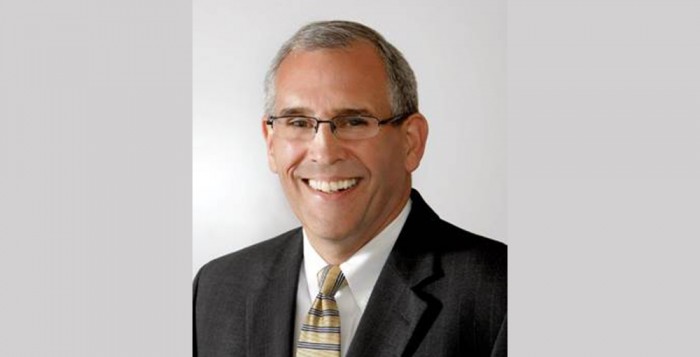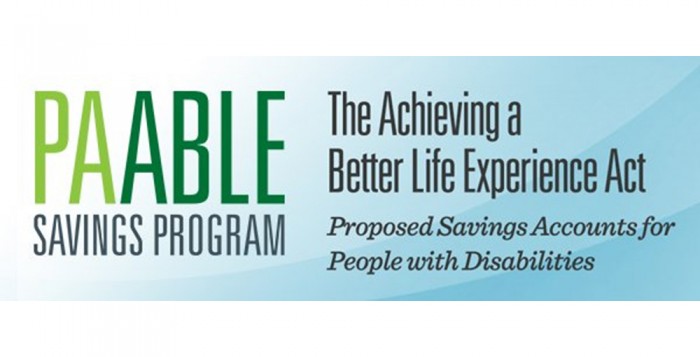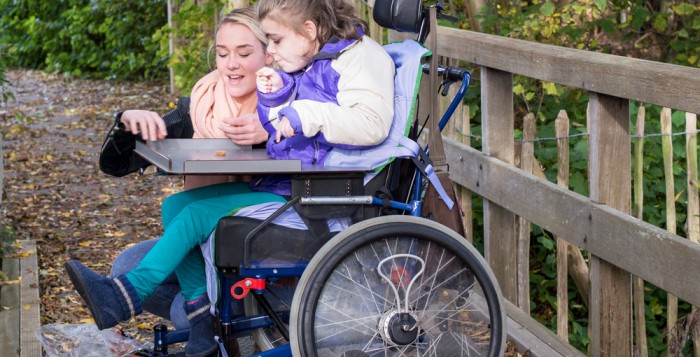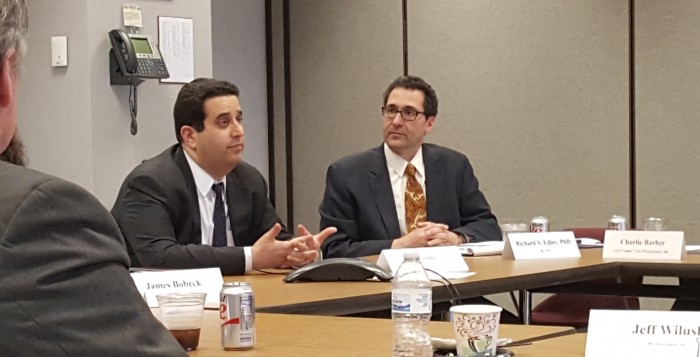Richard Edley
Dennis Marion
With regret, RCPA has learned of the passing of OMHSAS Deputy Secretary Dennis Marion. Our sincere condolences go out to Mr. Marion’s family and colleagues. Here is the announcement from the State:
(From OMHSAS)
From: “HS, Secretary’s Office”
Date: March 30, 2017 at 11:35:55 AM EDT
To: “DHS-STAKEHOLDERS”
Subject: [DHS-STAKEHOLDERS] Dennis Marion
I am writing today with great sadness to let you know of the passing of our colleague and dear friend, Dennis Marion. Dennis served admirably as the Deputy Secretary for the Office of Mental Health and Substance Abuse Services and all of us throughout the Department are feeling this tremendous loss.
Our thoughts and prayers are with the Marion family and especially his wife Camille during this difficult time. I feel honored to have been able to call Dennis a friend and will miss him terribly. He was a great colleague, husband, and father and will be missed by us all.
Thank you all for the messages of condolences that we have already received. The outpouring of sympathy is a testament to Dennis and the passion that he had for his work and his family.
Ted
Face-to Face Service Coordinator Training
On March 17, 2017, The Office of Long-Term Living (OLTL) announced the availability of classroom trainings for staff of Service Coordination (SC) Entities.
As a prerequisite to these classroom trainings, participants must have completed the three OLTL online SC modules available online, which provide a strong foundation for the basics needed to fulfill service coordination requirements.
The one-day, instructor-led classroom sessions will allow participants to take what they learned from the online modules and apply it to situations found every day on the job. Attendance at these sessions will be limited to SCs (not supervisors or directors) and to two participants per agency. Preference will be given to new SCs hired in 2016 and 2017. Additional registrations will be considered on a first-come, first-served basis.
There will be three, one-day instructor-led sessions held this spring (there will be additional trainings in other parts of the state later this year) which will run from 8:00 am to 4:30 pm each day, as follows:
The first training will be held in Harrisburg on Wednesday, April 5, 2017, at the PaTTAN Building, which is located at 6340 Flank Drive, Harrisburg, PA 17112 (717-541-4960). Addresses for the other trainings will be provided when established, and will be held in the following locations:
- Bethlehem – May 3, 2017 – Location TBD
- State College – June 6, 2017 – Location TBD
You must register in order to attend one of these sessions and complete the registration form. If you have questions about the training, please contact OLTL’s Bureau of Participant Operations at 717-787-8091.
PA ABLE Launch Announcement
On March 17, the Pennsylvania Department of the Treasury announced that the official launch of its PA Achieving a Better Life Experience (ABLE) Savings Program will occur on Monday, April 3, 2017, at a media and legislative event in the Capitol Rotunda at 12:30 pm. On that date, the PA Treasury ABLE program officially begins accepting accounts for enrollment and opens the door on hope for individuals with disabilities and the families who care for those loved ones. Kathleen F. McGrath, Esq., PA Savings Programs Director, invites stakeholders to join Treasurer Joe Torsella, US Senator Robert Casey, and PA Senator Lisa Baker as ABLE officially opens for business.
Pennsylvanians with eligible disabilities are about to receive the tools they need to build a sound fiscal future. ABLE accounts mean a new, fresh perspective on what living as a financially empowered individual can mean. A PA ABLE account gives individuals with qualified disabilities (Eligible Individuals), and their families and friends, a tax-free way to save for disability-related expenses, while maintaining government benefits. Federal and state law authorized the creation of PA ABLE accounts; additional information is available online.
The Pennsylvania Department of the Treasury welcomes the attendance of all stakeholders. Attendees are asked to RSVP with your name and the number you are bringing with you by March 30, 2017. Additional details will be provided to you once you RSVP your attendance.
Stakeholders are invited to share this information with anyone who has a stake in the successful launch of this new product. While program material will be available at the launch event, PA ABLE asks that requests for bulk material and outreach or speaking opportunities are sent by email. The more people who know about this program and what it means to be ABLE to look to living a secured future, the better.
In addition, PA ABLE invites stakeholders to share stories of those who are going to benefit from the ABLE account by contacting them by March 24, 2017. Ms. McGrath also invites stakeholders to follow the Twitter handle @PATreasury for the latest updates, and help drive the conversation with the hashtag #PAABLE.
OLTL/OMHSAS Community HealthChoices (CHC) Webinar
Please join the Office of Long-term Living (OLTL) and the Office of Mental Health and Substance Abuse Services (OMHSAS) for an informational webinar on Community HealthChoices (CHC) on Friday, March 31, 2017 at 1:00 pm. The webinar will feature a presentation from OLTL’s Chief of Staff, Kevin Hancock. Kevin will provide an update on CHC, describe progress to date, and discuss next steps. There will be an opportunity for questions and answers at the end of the presentation.
Background on CHC
The commonwealth is in the process of implementing CHC. CHC is a mandatory managed care program for eligible individuals, providing physical health services and long-term services and supports, such as attendant care services. CHC is being geographically phased in across the commonwealth beginning in January of 2018 in 14 counties in southwestern Pennsylvania, followed in July 2018 by five counties in the southeastern portion of the commonwealth. The CHC implementation will be completed in January 2019, when the remaining counties are implemented. The move to CHC will assist DHS in continuing to provide quality services. CHC managed care organizations will be required to coordinate covered services, Medicare, and behavioral health services for enrolled participants.
To register for the webinar, please follow this link. Once you have registered, you will receive a confirmation email containing connection information. Please note, the connection information you receive will be unique to you and should not be shared with others.
Reminder: All CHC-related information can be found here. Comments can be submitted electronically. If you have any questions, please contact the Office of Long-Term Living Bureau of Policy and Regulatory Management at 717-783-8412.
A listserv has been established for ongoing updates on the CHC program, titled OLTL-COMMUNITY-HEALTHCHOICES. If you would like to update or register your email address, please follow this link.
HealthChoices Effective Date Adjustment
The Department of Human Services (DHS) is announcing two changes to the planned effective dates of the new Physical HealthChoices agreements originally planned for June 2017. View the full release for details.
DOH Issues Guidance for Expanded Services by Home Care Agencies
On February 23, 2017, the Pennsylvania Department of Health (DOH) released guidance to Home Care Agencies and Registries in follow-up to a policy clarification issued on November 23, 2016 regarding Direct Care Workers Non-Skilled Services in Home and Community-Based Services Settings.
The guidance includes a tool for organizations to use to comply with the Department of Health’s Home Care Agency and Registry regulations. The tool describes the consumer characteristics of individuals who can receive non-skilled activities/services, defined as Specialized Care. In addition, it describes the Home Care Agency/Registry responsibility for training and documentation of the direct care worker’s competency prior to delivering the Specialized Care. The guidance also establishes guidelines for the inclusion of Specialized Care into an individual’s care or service plan. RCPA’s policy statement in support of this clarification and guidance for expanded service options is available here.
DHS Secretary Ted Dallas Attends RCPA Board of Directors Meeting to Discuss Agency Consolidation
Department of Human Services (DHS) Secretary Ted Dallas spoke at the RCPA Board of Directors meeting on February 22 regarding Governor Wolf’s proposal to consolidate four state health and human service agencies. If approved by the legislature, the plan would be launched on July 1, 2017.
Although the Secretary referenced approximately $90 million in savings from this process, he also affirmed that this “cannot be just about saving money.” Dallas remarked that time spent dealing with the bureaucracies as currently constructed takes time away from providing services, and so the goal is to eliminate redundancies.
RCPA members brought up key topics such as population health, licensing, and services for persons with co-existing conditions. When asked how this consolidation will affect addressing the opioid crisis, Secretary Dallas responded that the focus would be shifted to treating the whole person, rather than each individual condition.
The meeting concluded with the Secretary requesting ideas for continued efficiencies and how to ultimately better serve members. On the day of the Governor’s announcement, RCPA issued a statement expressing support for the proposal and committing to working with the administration to implement the plan in a smart and cost-effective manner.
DHS Provides Grants Aimed at Improving Coordination of Care for Medicaid Patients
On February 8, the Department of Human Services (DHS) Secretary Ted Dallas announced the availability of onboarding grant funds to help connect hospitals and ambulatory practices to the Authority’s Pennsylvania Patient & Provider Network, or P3N.
The P3N enables electronic health information exchange (eHIE) across the state through the connection of health care providers to health information organizations (HIO), and the participation of the HIOs in the P3N.
“These grants will assist providers in the efficient delivery of quality services to the individuals we serve across the commonwealth,” said DHS Secretary Ted Dallas. “As more providers participate, individuals will experience better coordination of care and a better quality of health care.”
The grant program, available to Pennsylvania HIOs to enable the connection of inpatient hospital/facilities and outpatient practice or other outpatient provider organizations participating in the Medicaid Electronic Health Records (EHR) Incentive Program, includes:
- Up to $75,000 to connect each eligible inpatient hospital or other inpatient facility to an HIO;
- Up to $35,000 to connect each eligible outpatient practice or other outpatient provider organization to an HIO; and
- Up to $5,000 to enable other eligible providers that do not fit into the two categories above, but want to enable HIE participation and connect to an HIO via a portal.
Each eligible provider will connect via an HIO to the P3N.
Only a single award is permitted to any one hospital/facility or outpatient practice. The anticipated performance period for this grant runs through September 30, 2017.
The grant will:
- Help providers deliver higher quality and more efficient care, particularly through better care coordination for patients covered by Medicaid;
- Support provider participation in private-sector HIOs by offsetting connection costs;
- Incentivize HIOs to join the P3N, a precondition for receiving funding;
- Support rapid movement toward the participation in eHIE, and support various care reform efforts currently underway across the Commonwealth; and
- Defray up-front costs for individual providers to join an HIO, thus helping to achieve meaningful use and satisfy obligations under the Medicaid EHR Incentive Program.
This program will be made possible through an $8.125 million grant from the federal Centers of Medicare & Medicaid Services (CMS). Under the terms of the federal grant, CMS will provide 90 percent of the onboarding grant, with the remaining 10 percent funded by the Commonwealth. The grant applications and supporting materials are available online here.
(Information courtesy of DHS)
Pennsylvania Department of Aging: Friday Wrap-Up
Weekly newsletter with some useful information for providers who serve seniors.


















